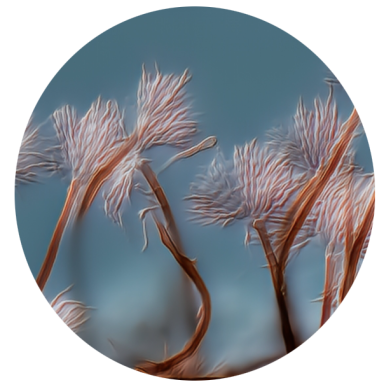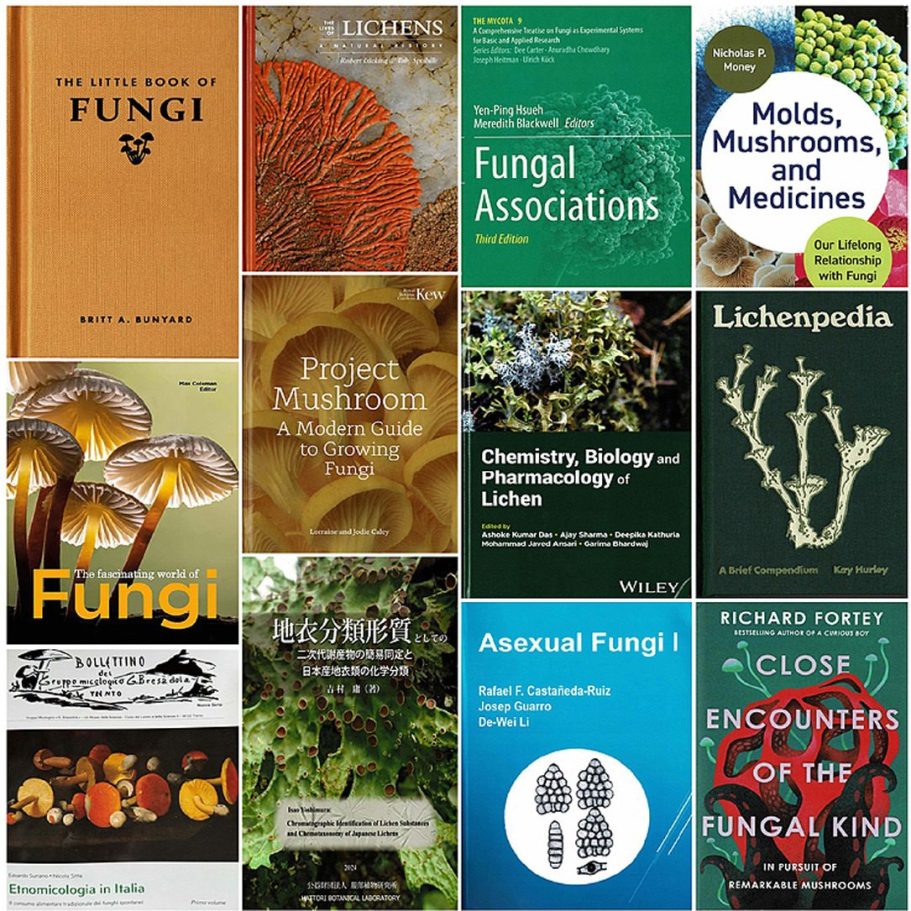About Asexual Fungi I
An essential book for contemporary mycology
Welcome to the official webpage for "Asexual Fungi I", a groundbreaking book authored by the renowned mycologist, Rafael F. Castañeda-Ruiz, and co-authored by distinguished mycologists Josep Guarro and De-Wei Li.
This comprehensive work presents a compilation of the more than 500 taxa of enterogenous dematiaceous hyphomycetes, commonly described as ‟tretic” (spores formed with the inner layers of the conidiogenous cells and emerging through pores) in different journals from 1974 to 2022.
This delves deep into the fascinating world of asexual fungi with tretic conidiogenesis, offering both scientific rigor and updated taxonomic criteria of these fungi for researchers, academics and students.
Authors
Rafael F. Castañeda-Ruiz, celebrated internationally for his contributions to mycology, brings decades of expertise to this volume, offering new insights into the taxonomy, biology, and ecological importance of these enigmatic organisms. With contributions from Josep Guarro, a leading figure in fungal research, and De-Wei Li, an expert in environmental fungi, this collaboration ensures that "Asexual Fungi I" provides a global perspective on the subject.

Rafael F. Castañeda
Mycologist, expert in taxonomy of asexual fungi (Hyphomycetes) and has published 420 publications on taxonomy. Since 1983 he has described more than 900 new genera and species of microfungi from around the world. He participated in studies on fungal diversity in Brazil, Canada, China, Costa Rica, Cuba, Ecuador, Spain, India, Portugal, Mexico, Nepal, Nigeria, USA, Venezuela, Vietnam, Zimbabwe, and has isolated more than 10000 strains of common, uncommon and new microfungi, deposited in various fungal collections (ATCC, CBS, CCM-CIBE, FMR, IMI, INIFAT, JE, MUCL, UAHM, URM, XAL).

De-Wei Li
He has expertise in mycology in the following: spatial and temporal patterns of airborne fungi, relationships of airborne fungi and air quality, characterization of airborne fungal spores; indoor fungi, sampling strategy of indoor fungi investigation, fungi of air quality importance; biosystematics of Stachybotrys and allies and plant pathogenic fungi. His expertise also includes biocontrol of Botrytis cinerea; utilizing ectomycorrhizae for solid waste remediation. He has published over 150 publications on microfungi and three books on taxonomy and fungal diversity.

Josep Guarro
He has lectured in a large number of conferences, invited lectures and communications in national and international scientific congresses and has an extensive number of scientific publications (more than 350 publications according to ISI Web of Science, 300 according to Scopus and 177 according to PubMed/Medline) that have led to the international expansion and consolidation of the research group he directs. This consolidation has also led to the publication of books considered by other mycologists and microbiologists as excellent references and important working tools, such as the fundamental “Atlas of Clinical Fungi” and other three books on Ascomycetes taxonomy.
A fascinating journey through tretic conidial fungi
Welcome to the official website of “Asexual Fungi I”: a comprehensive book that explores the morphological diversity of the hyphomycetes with tretic conidiogenesis.
Fungal Taxonomy
More than 500 taxa of tretic hyphomycetes (conidia formed with the inner layers of the conidiogenous cells and emerging through pores)are described and illustrated with their morphological and developmental details for, With the adoption of one fungus = one name, which became effective in 2013 (International Code of Nomenclature for algae, fungi, and plants), and the development of phylogenetic studies on fungi, the names of many fungi have been changed, Ulocladium, for example, being demoted to synonymy with Alternaria. A key to the species treated is provided, except for those of the genus Corynespora.
Plant Pathogens
Numerous phytopathogenic species described during the last four decades in the genera Alternaria, Bipolaris, Corynespora, Curvularia, Exserohilum and Helmintosporium have been treated in this book, allowing their identification by plant pathologists, plant protection experts and other professionals related to plants grown heath in agriculture.
Human Health & Fungal Diversity
For human pathogenic fungi and how these fungi affect public health, several asexual fungi are included in the present book. These fungi produce rare or uncommon lesions in humans, mostly in patients treated with immunosuppressant medications or advanced human immunodeficiency.
The book will help explore the various forms and functions of asexual fungi in our world.
How to Order "Asexual Fungi I"
You can purchase "Asexual Fungi I" directly in our website:
- Go to Shopping Cart or Order Now
- Add the Book to Your Cart by Clicking on the image of the book to be directed to the product page for "Asexual Fungi I."
- Click "Proceed to Checkout" to continue.
- Fill in Your Shipping Information (Enter your name, address, and contact details to ensure smooth delivery).
- Choose Your Shipping Method (Select between regular or express delivery. Regular delivery is the more affordable option).
- Complete Your Payment
- We accept PayPal and credit card payments.
- Click "Place Order" to finalize your purchase.
After your order is complete, you will receive a confirmation email with the details and an invoice. Thank you for choosing "Asexual Fungi I"! 📖
3
Authors
50
Collaborations
500 +
Described and Illustrated Taxa

Printed by Selvi Graphics, Valencia, Spain.
July 2024
ISBN 978-84-127619-8-6
See Review by David L. Hawksworth in 2024 Mycological book news, Fungal Biology Volume 50, December 2024 https://doi.org/10.1016/j.fbr.2024.100399
©All rights reserved
Necesitamos su consentimiento para cargar las traducciones
Utilizamos un servicio de terceros para traducir el contenido del sitio web que puede recopilar datos sobre su actividad. Por favor revise los detalles en la política de privacidad y acepte el servicio para ver las traducciones.



